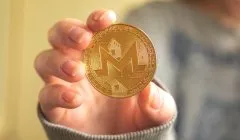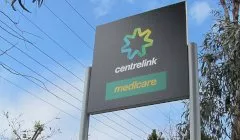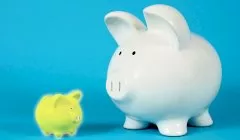Save
A crackdown on popular tax deductions is coming
The tax office has signalled loud and clear it will be targeting popular, and commonly misunderstood, tax deductions this year. Here’s everything you need to know to avoid the regulator’s wrath.
A crackdown on popular tax deductions is coming
The tax office has signalled loud and clear it will be targeting popular, and commonly misunderstood, tax deductions this year. Here’s everything you need to know to avoid the regulator’s wrath.

It’s always been the case that taxpayers can’t claim tax deductions for expenses they haven’t forked out for, or that don’t wholly relate to their work.
In years gone by, the ATO has been relatively good at catching the big fish, such as those involved in large scale tax fraud or continual and calculated abuse of the system.
Now, it’s the small fish - even those with suspect laundry claims - that the ATO can quickly and accurately identify and catch. The tax office’s data matching tools are at their most advanced, and access to government and institutional data is unprecedented.
What to watch this tax time

Short-term rentals
If you have ever put your place up for rent on Airbnb, or a similar accommodation sharing platform, make sure you’re declaring the related income in your tax return.
By using the new data provided by online rental platforms, including income received per listing as well as listing dates, enquiry and booking rates, prices charged or quoted per night, and other information, the ATO will seek to identify taxpayers not meeting their registration, reporting, lodgement, or payment obligations.
The new data complements long-term rentals information which the ATO already receives from State and Territory Bond Boards.
“The availability of short stay rentals has exploded thanks to the online revolution. With the growing number of homes, apartments, units and rooms available via accommodation sharing sites, there is a real risk some people may not understand their tax obligations,” the ATO said.
“We are increasingly using data and technology, to identify any missing income in your tax returns. This data will also identify taxpayers who use sharing economy rental platforms to list a property that is not genuinely available for rent in order to claim unwarranted deductions. There is no high-tech hideaway for rental income,” the ATO said.
"Standard deductions"
A pervasive myth about eligible tax deductions is that everyone is entitled to claim a “standard deduction” of $150 for laundry, 5,000 kilometres for cars or $300 for work-related expenses.
These deductions are available and can be legitimate, but they must arise from expenses incurred directly from a work-related activity.
“While you don’t need receipts for claims under $300 for work related expenses, $150 for laundry and 5000 kilometres, you still must have spent the money, it must be related to earning your income, and you must be able to explain how you calculated your claim,” said the ATO.
Cosmetics
Many taxpayers also wrongly believe they can claim skin products which they deem as work-related.
For example, some taxpayers falsely believe they can claim makeup expenses where a job requires them to attend formal events.
“There are only a handful of taxpayers with special circumstances who can claim things like makeup containing sunscreen. For most, there isn’t a link to earning their income,” the ATO said.
Property expenses
Under legislation which applied from July 1 2017, taxpayers are no longer able to claim any deductions for the cost of travel to their investment property, with very few exclusions.
Further, income tax deductions for the decline in value of previously used plant equipment in an investment property are no longer allowed.
“A lot of clients have been coming into our offices without really understanding that they have been affected by those changes and they think they can claim things that they now can't and a lot of them are not very happy that they can no longer make these claims particularly around travels costs,” said H&R Block’s director of tax communications, Mark Chapman.
Working from home
The ATO is also set to launch a compliance crackdown on work-from-home expenses. You can read our full report on this here.

Tax saving
$20,000 instant asset write-off extension welcomed, but calls for broader support grow
The Australian government's decision to extend the $20,000 instant asset write-off into the next financial year has been met with approval from business leaders. However, there are growing calls for ...Read more

Tax saving
The downsizer dividend: How targeted tax levers could unlock housing supply in Australia
A call by Raine & Horne to incentivise seniors to move to smaller homes has kicked off a wider policy conversation that reaches well beyond real estate. If designed well, a targeted package could ...Read more

Tax saving
Raine & Horne's bold move could unlock housing supply but what are the hidden risks
Raine & Horne’s call for targeted tax incentives to encourage empty nesters to ‘rightsize’ isn’t just another sector wish list; it’s a potential lever to free up family homes, ease rental ...Read more

Tax saving
From annual check-ups to always‑on: how modern portfolio reviews unlock after‑tax alpha
The era of once‑a‑year portfolio check‑ins is over. Continuous, tech‑enabled reviews now drive returns through tax efficiency, risk control and behavioural discipline—especially in a high‑rate ...Read more

Tax saving
Navigating tax laws for capital gains in 2023
The landscape of Australian tax laws surrounding capital gains is ever-changing, with 2023 being no exception. Read more

Tax saving
What you need to know about the tax implications of crypto
One million Aussies are now invested in crypto, but many have not thought about how these investments will affect them at tax time. Read more

Tax saving
Welfare overhaul could give recipients a leg-up
Australia’s Centrelink recipients who’ve been doing it tough are in for a potentially easier time if the federal government pursues ambitious reforms that could provide sturdier safety nets. Read more

Tax saving
Students should think twice before tapping into their super
Former students might want to think carefully before they look to take advantage of the federal government’s biggest first home buyer incentive. Read more

Tax saving
$20,000 instant asset write-off extension welcomed, but calls for broader support grow
The Australian government's decision to extend the $20,000 instant asset write-off into the next financial year has been met with approval from business leaders. However, there are growing calls for ...Read more

Tax saving
The downsizer dividend: How targeted tax levers could unlock housing supply in Australia
A call by Raine & Horne to incentivise seniors to move to smaller homes has kicked off a wider policy conversation that reaches well beyond real estate. If designed well, a targeted package could ...Read more

Tax saving
Raine & Horne's bold move could unlock housing supply but what are the hidden risks
Raine & Horne’s call for targeted tax incentives to encourage empty nesters to ‘rightsize’ isn’t just another sector wish list; it’s a potential lever to free up family homes, ease rental ...Read more

Tax saving
From annual check-ups to always‑on: how modern portfolio reviews unlock after‑tax alpha
The era of once‑a‑year portfolio check‑ins is over. Continuous, tech‑enabled reviews now drive returns through tax efficiency, risk control and behavioural discipline—especially in a high‑rate ...Read more

Tax saving
Navigating tax laws for capital gains in 2023
The landscape of Australian tax laws surrounding capital gains is ever-changing, with 2023 being no exception. Read more

Tax saving
What you need to know about the tax implications of crypto
One million Aussies are now invested in crypto, but many have not thought about how these investments will affect them at tax time. Read more

Tax saving
Welfare overhaul could give recipients a leg-up
Australia’s Centrelink recipients who’ve been doing it tough are in for a potentially easier time if the federal government pursues ambitious reforms that could provide sturdier safety nets. Read more

Tax saving
Students should think twice before tapping into their super
Former students might want to think carefully before they look to take advantage of the federal government’s biggest first home buyer incentive. Read more













